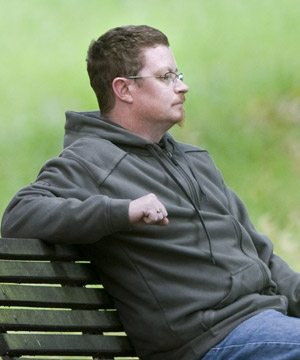The sordid actions of police informant Rob Gilchrist infiltrating New Zealand activist groups is yet another case of the bourgeois state ‘just doing its job’. In this blog post John Moore argues that the left should strongly condemn the police for their actions, yet those that act with howls of surprise and shock show how little understanding they have of the relationship between the state and capitalism in New Zealand. The left needs to start organizing more seriously against the coercive powers of the capitalist state, but at the same time exercising caution rather than paranoia.
Police spy Rob Gilchrist
The actions of Rob Gilchrist and the police reveal the ugly face of the capitalist state.
So far we know that Gilchrist has acted as a spy for the police for 10 years. He has informed and gathered information on organisations including Greenpeace, anti-Iraq War groups, poverty and beneficiary rights groups, animal welfare groups, GE-free groups and the Workers Party (formerly the Anti-Capitalist Alliance).  The use of Gilchrist as a police spy was not an anomaly, but part of wider police intelligence programme. According to the Sunday Star Times http://tinyurl.com/684u3s
The use of Gilchrist as a police spy was not an anomaly, but part of wider police intelligence programme. According to the Sunday Star Times http://tinyurl.com/684u3s
The use of an informer was part of a much wider police intelligence effort targeting community groups, using surveillance, filming of protests and seizure of computers and papers following protest arrests.
